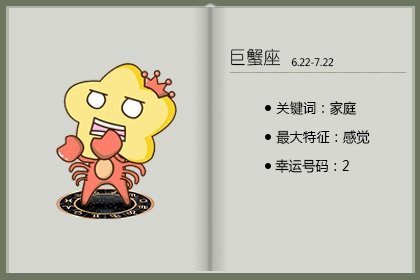
A view of Sanyuanqiao, one of Beijing's major overpasses Photo: VCG
Editor's Note:As the Chinese economy, along with the global economy, has faced considerable challenges in recent years, some Western officials and media outlets have stepped up their long-standing smear campaign against the world's second-largest economy. They cherry-pick information and distort facts to hype various specious narratives such as "Peak China," while turning a blind eye to China's considerable strengths and vast potential.
As part of the Global Times' multimedia project to set the record straight, the opinion page is publishing a series of in-depth interviews and signed articles with economists, experts and scholars from different countries who share their views on the prospects of the Chinese economy and debunk Western rhetoric.
In the sixth article of the series, Global Times (
GT) reporter Qian Jiayin talked to Dan Steinbock (
Steinbock), an expert on the multipolar world economy and the founder of the global consultancy Difference Group. Steinbock said he is confident in the future prospects of the Chinese economy, and without protectionist constraints, Chinese growth would be even higher. When its output potential is penalized for geopolitical reasons, that harms not just China but all countries that engage in trade, investment and other exchanges with China.
GT: At the beginning of this year, you mentioned that China needs to unleash its consumption power. According to the data from the Chinese Ministry of Commerce, in Q1 of 2024, the contribution of final consumption expenditure to economic growth reached 73.7 percent. How do you evaluate the consumption vitality in China in the first half of the year? Steinbock:The simple answer is: So far, so good. The new data is promising. It suggests that Chinese consumption is gaining strength and the recovery is broadening, fueled by the government's fiscal expansion plan and the resilience of Chinese consumers.
In 2023, there was an international disinformation drive to "talk down" the Chinese recovery. The common denominator of these flawed narratives was that Chinese consumption had imploded. By contrast, I argued that Chinese consumers did not lack purchasing power. They were able to spend and increase their spending.
In the West, observers tend to argue that Chinese consumption should be relatively higher, "more like in the West." Yet, unlike the US, China is still developing, and that requires greater investment, particularly in the 3rd and 4th-tier cities. Furthermore, the Western models have problems of their own. In the US, neither growth nor productivity can sustain consumption, which requires much debt-taking. In the US, gross federal debt is more than 120 percent of GDP. This figure is unsustainable.
GT: China is accelerating the development of new quality productive forces. How do you understand the concept of "new quality productive forces" and its impact on the Chinese economy? Do you think it has any reference value for the development of other countries? Steinbock:The Chinese concept of "new quality productive forces" is marked by innovation, which fuels economic growth and productivity - that is, a substantial increase in "total factor productivity," stressing the role of technology-driven growth and development.
Basically, it is about higher-quality growth, so the idea of "new quality productive forces" certainly has reference value for development in other countries. Today, China's new quality productive forces are significantly broader, more international and more advanced than a decade ago. As the IMF stated recently, "China's economic development over the past few decades has been remarkable, driven by market-oriented reforms, trade liberalization and integration into global supply chains."
However, as trade is threatened by protectionism and as the West seeks to restore its old control of global supply chains in the name of "de-risking," it is penalizing market-oriented reforms as well.
GT: China's GDP grew by 5.3 percent year-on-year in the first quarter, exceeding the 4.6 percent growth expectation in a Reuters poll of economists. Why do you think China can still maintain strong economic growth? Are you confident in the future prospects of the Chinese economy? Steinbock:I am confident in the future prospects of the Chinese economy. I am not confident in the protectionism that has targeted China since 2017. In the first half of the year, the IMF upgraded its projection of China's GDP growth to 5 percent. In the absence of protectionist constraints, Chinese growth would be even higher. When its output potential is penalized for geopolitical reasons, that harms not just China but all countries that engage in trade, investment and other exchanges with China.
It is not a coincidence that the West's protectionism has sought to target most of these forces: foreign investment to slow Chinese urbanization, technology trade to penalize innovation, globalization to undermine internationalization, and the list goes on. It is rationalized by "competition," but it is just protectionism with a different name. And its ultimate objective is geopolitics, which has always been bad economics.
GT: The US government announced that it will impose tariffs on Chinese electric cars and other products. Western politicians have been hyping China's "overcapacity." What are they trying to achieve? According to the logic of the US, is it overcapacity when the US exports large quantities of soybeans, airplanes and natural gas every year?
Steinbock:In the post-World War II era, American car brands ruled across the world. Initially, the Detroit "Big 3" benefited from oligopolistic benefits. But when Western Europe and Japan recovered, their brands captured shares in the car markets. Then, Washington charged both Germany and Japan for being anti-competitive. Today, China is leading in new energy vehicles. Yet, when Chinese producers are exporting their cars, which are increasingly attractive in international markets, it is seen as a sign of "overcapacity." Perhaps the leading producers in the West would like to retain their old dominance in global markets, but that's no longer viable.
Even though the old colonial world is gone, some countries still insist on their past colonial privileges. Today, in the 21st century, that's not viable. That's why we see tariffs and protectionist measures being imposed to maintain bygone privileges.
GT: The US is imposing tariffs on Chinese new energy products and persistently raising tariff barriers. What impact will this have on the global energy transition? Steinbock:In the early 1930s, the West resorted to such protectionism. In reality, these policies prolonged the economic pain, unleashing nationalistic xenophobia. Today, we are witnessing a distressing déjà vu. The rise of "America First" doctrines in the US has fostered the rise of the far-right across Europe, as evidenced by the recent elections in the European Parliament. In this kind of case, they will defer and distract from the necessary global energy transition.
The most recent US tariffs against Chinese new energy products and rising tariff barriers represent more of the same policies. They have little to do with "competition." They reflect a geopolitical effort to isolate, contain and undermine China's economic rise. Tariff-based protectionism can complicate, delay and penalize the long-anticipated global energy transition. But their collateral damage in the Global South may prove even worse and their adverse consequences will be felt on a global scale.
GT: China is promoting economic cooperation and development among southern countries globally through initiatives such as the Belt and Road Initiative and RCEP. However, some Western countries are keen on interpreting China's economic initiatives as "anti-Western." Is this an overly simplistic and incorrect interpretation? Steinbock:It is both very simplistic and factually incorrect. Since the aftermath of the 2008 financial crisis and the rise of large emerging economies, Western geopolitics has engaged in questionable imperial nostalgia. Neither BRICS nor the large emerging economies of the Global South want to "subvert" the world order.
By contrast, they seek to foster a more sustainable international order. The world economy is no longer driven by the G7 alone. It is multipolar. The diversification of the global economy is not "anti-West"; it can make global development more stable, and more sustainable.
Both the BRI and the RCEP have been open to the economies in the West. The RCEP reflects trading ideals that are supported not just by China but many other emerging and developing countries, as well as some advanced economies. The BRI can foster industrialization and modernization in those developing and emerging economies that suffer from longstanding colonial subjection. Current global arrangements must not reflect just the interests of the West. They must also reflect the aspirations of the multipolar world, in which global growth prospects are driven by large emerging economies.
GT: During a period of global economic turmoil, how do you think China's high-quality development model contributes to the stability of the world economy? Steinbock:Only a decade or two ago, Chinese megacities suffered from the great challenges of pollution. Yet, as I have spent time in Shanghai and Guangzhou, there has been huge progress. It didn't happen automatically. The proactive policies of the central government and the big municipalities played a vital role. Of course, every country has its own development trajectory, but smart countries learn from each other. Today, geopolitics is the greatest threat to sustainability because it distracts and takes resources away from what should be a concerted global effort to tackle extreme climate change, for which future generations will pay the bill.
There's also another way that China's development model can contribute to global stability. By the early 2010s, China's growth impact on the low- and middle-income countries had increased significantly. These trends intensified with the rise of Chinese investment abroad and the launch of the BRI in 2013, which has boosted modernization in many emerging and developing economies.
Recently, Bloomberg, based on IMF data, estimated that China will account for about 21 percent of the world's new economic activity from 2024 to 2029. That compares with 20 percent for all the G7 countries combined. Efforts at another unwarranted cold war and geoeconomic fragmentation contribute to increasing global instability.
希望以上内容对您有帮助。
 常用工具
常用工具 医生入驻免费问医生
医生入驻免费问医生 常用工具
常用工具 医生入驻免费问医生
医生入驻免费问医生
 莆田有哪些特色小吃 福建莆田的特产
莆田有哪些特色小吃 福建莆田的特产  天蝎座最悲剧的星座配对! 无法忍受射手座
天蝎座最悲剧的星座配对! 无法忍受射手座  双鱼女能拿得住双子男吗 双子男爱惨了双鱼女
双鱼女能拿得住双子男吗 双子男爱惨了双鱼女  巨蟹女和白羊男合适吗 需要有所调整
巨蟹女和白羊男合适吗 需要有所调整  落地破财是什么意思 落地破财的意思
落地破财是什么意思 落地破财的意思  白羊座男孩子的性格特点 白羊男比较果断勇敢
白羊座男孩子的性格特点 白羊男比较果断勇敢  摩羯最怕的克星 摩羯最怕哪个星座
摩羯最怕的克星 摩羯最怕哪个星座  和喜欢的人聊天消息一定能秒回!第一名就是射手!
和喜欢的人聊天消息一定能秒回!第一名就是射手!  热播电影排名推荐 2022近期正在热映的6部电影
热播电影排名推荐 2022近期正在热映的6部电影 写给心累,却又不得不坚强的你
写给心累,却又不得不坚强的你 婚姻里,请时刻保持单身的能力!
婚姻里,请时刻保持单身的能力!





























